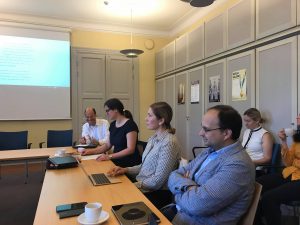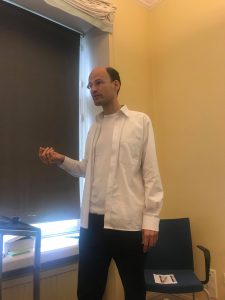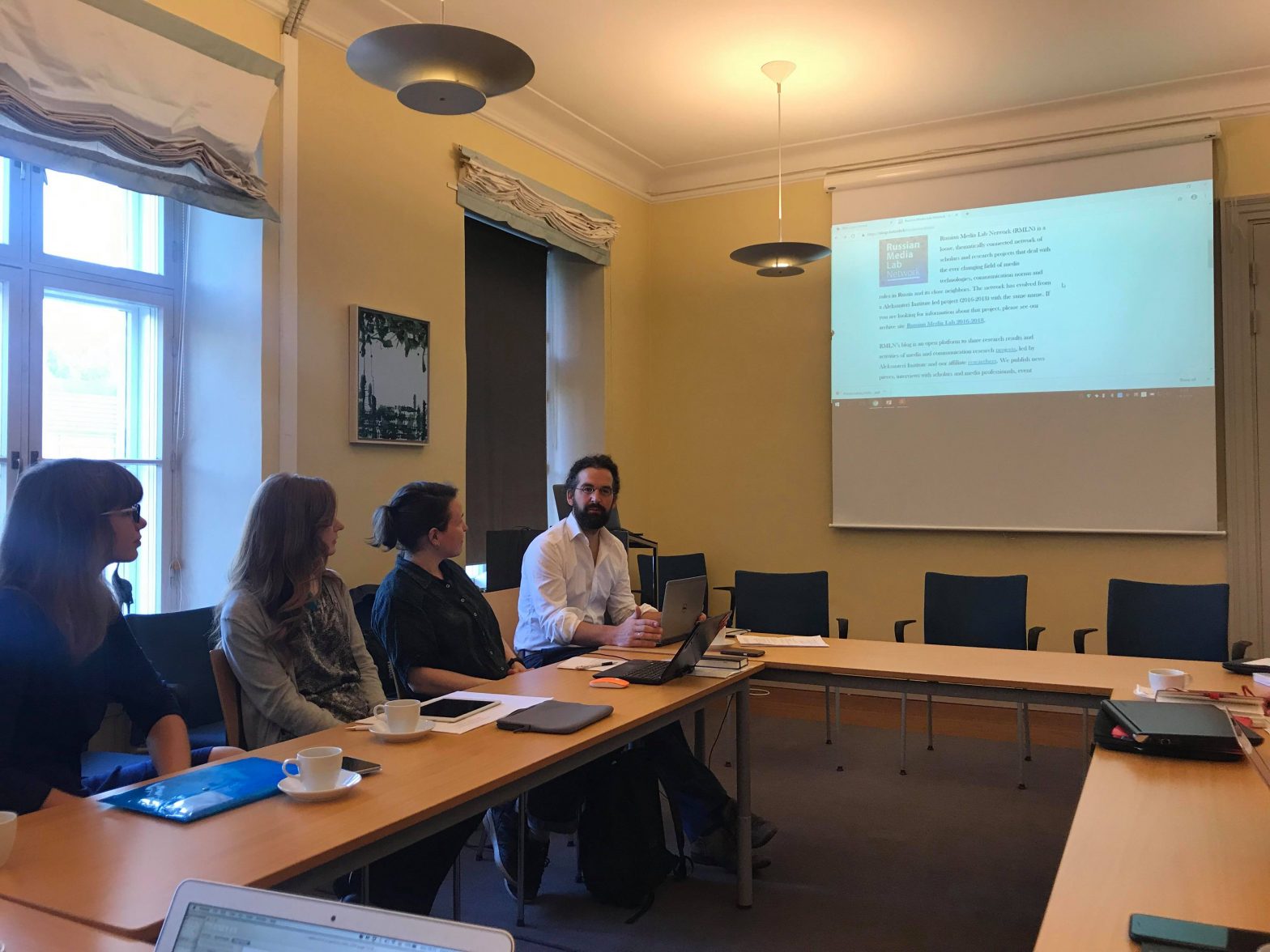 This week Aleksanteri Institute hosted a workshop “Media control as source of political power in Central and Eastern Europe”, co-organized by Research Centre for East European Studies at the University of Bremen and Russian Media Lab Network. The workshop brought together an interdisciplinary group of scholars to present their research and to discuss about media manipulation and pressure in various political regimes of post-Soviet countries. The presentations dealt with for example government control in traditional media, media coverage of protest movements, ways of Internet regulation, agency of local journalists in (semi)authoritarian regimes.
This week Aleksanteri Institute hosted a workshop “Media control as source of political power in Central and Eastern Europe”, co-organized by Research Centre for East European Studies at the University of Bremen and Russian Media Lab Network. The workshop brought together an interdisciplinary group of scholars to present their research and to discuss about media manipulation and pressure in various political regimes of post-Soviet countries. The presentations dealt with for example government control in traditional media, media coverage of protest movements, ways of Internet regulation, agency of local journalists in (semi)authoritarian regimes.
Co-organizer of the workshop Prof. Dr. Heiko Pleines from the Research Centre for East European Studies at the University of Bremen argues that the concept of media control in non-democratic regimes requires further empirical and theoretical elaboration in current political and technological settings.
 – Why does the concept of media control matter for studying political regimes in Central and Eastern Europe?
– Why does the concept of media control matter for studying political regimes in Central and Eastern Europe?
– Already based on the actual words there is an obvious tension between media control and media freedom. In this respect there are three major forms of media control. Control over content, i.e. censorship, is an obvious restriction of media freedom. Regulatory control and managerial control are more ambiguous. State regulation does not necessarily hamper media freedom. If we understand media pluralism as an important pre-condition for media freedom, anti-monopoly regulation can even promote media freedom. Similarly, someone has to have managerial control over media. The fact that managerial control is usually attached to ownership can impact media freedom in different forms.
The role of regulatory control and control via ownership get special attention when government tries to use them in order to influence on media reporting, thus in fact creating (self-)censorship pressure. These attempts are an important part of authoritarian backsliding, which has been observed in Hungary and Poland. However, nowadays a broad number of governments do not want to employ outright censorship and prefer indirect and less visible ways to influence on media content. This is especially true for countries, formally still adhered to a democratic constitution, which, among other things, guarantees media freedom and free elections.
In such regimes, which Levitsky and Way* call competitive authoritarian, political competition is real and based on democratic rules, but unfair (i.e. highly manipulated). Several studies have shown that in electoral or competitive authoritarian regimes media manipulation is used more often than other types of manipulation when regimes attempt to shift the “playing field” in their favor. This makes media one of the major battlefields in political power struggles as the examples of Russia or Ukraine illustrate. Similarly, in backsliding democracies, media are one of the first targets of authoritarian tendencies, as we have seen in Hungary and Poland.
– What are the main research questions raised around media control in these countries?
– The main question of the workshop, at least as I have perceived it, was how the political pressures related to authoritarian tendencies or how regime features impact the work of media content producers, mainly journalists but also online activists. The interdisciplinary discussions between political science and media studies were very helpful in this context.
– What could be identified as the outcomes of this workshop?
– As usual, the major outcome is that a lot of further research has to be conducted before we can up with clear answers. Honestly, I think that depending on the perspectives and prior knowledge of the individual participants they saw the major outcomes in different ways. For participants from media studies new political science concepts to analyse non-democratic political regimes were seen as a new insight. For political scientists new concepts in media studies, e.g. the distinction between different publics in authoritarian regimes and a discussion of the role of leadership-critical publics as presented by Florian Toepfl in his keynote, were an important contribution. So, I would think that the need and the basis for interdisciplinary research on the issue are a major outcome. In addition, we, of course, now have many very interesting papers offering deep insights into important aspects of our research question.
* Levitsky, S., & Way, L. A. (2010). Competitive authoritarianism: Hybrid regimes after the Cold War. Cambridge University Press.

